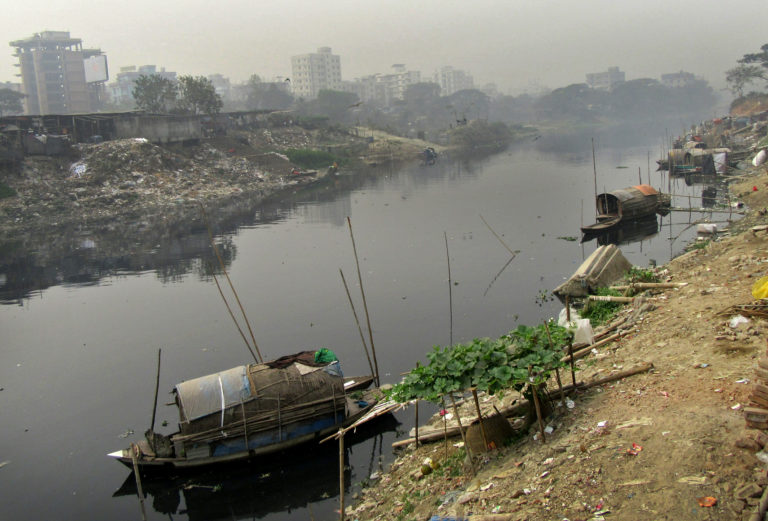Citizen and Decision-maker Attitudes to Freshwater Pollution in Dhaka, Bangladesh
Bangladesh’s capital Dhaka is one of the most densely populated cities in the world and freshwater pollution is a major challenge. The city is surrounded by six rivers, interconnected with many canals and lakes. Over the past decades, these freshwater systems have been under severe pressure due to rapid urbanisation, increased migration, unregulated industrial expansion, and weak enforcement of environmental regulations. Industrial discharge, municipal wastewater and fecal waste are among the main sources of pollution in these freshwater systems. Water pollution has severe detrimental effects on human health and is responsible for premature deaths and outbreaks of illnesses that particularly affect children and women.
The project aims to assess citizen and decision-maker attitudes to pollution of watercourses as well as attitudes towards associated regulations, with a focus on water pollution due to industrial discharge and fecal waste in Dhaka. The main objective of this project is to understand and document citizen, policymaker and other stakeholder perceptions of freshwater pollution and identify ways forward to reduce water pollution through behavioral change and effective regulatory mechanisms that are considered socially acceptable and politically feasible.
This project is funded through our Partnership Funding.
Publications
Brouwer, R., Sharmin, D. F., Elliott, S., Liu, J., Khan, M.R. (2023). Costs and benefits of improving water and sanitation in slums and non-slum neighborhoods in Dhaka, a fast-growing mega-city. Ecological Economic 207 (107763). DOI: 10.1016/j.ecolecon.2023.107763.
Brouer et al. (2020). Water Pollution Management in Dhaka: Stakeholder perceptions to inform action, WSUP Policy Brief.
Katrina C., Mills, J.E., Balls, E., Norman, G. (2019). Designing and delivering research-into-use programmes in the WASH sphere. Discussion paper.

